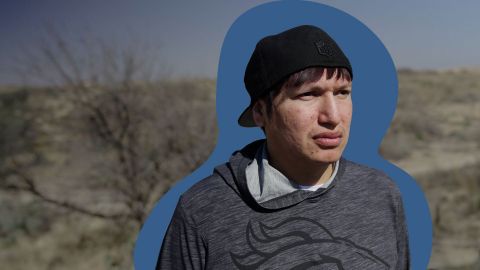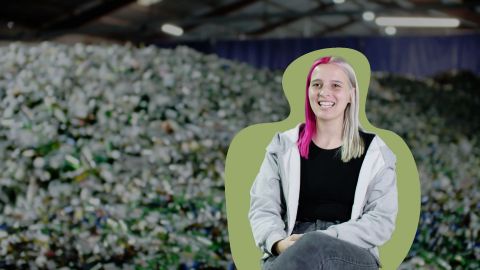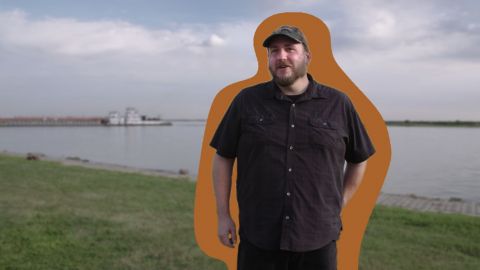Facing Down the Fossils on the United States Gulf Coast
By Josh Landis and Briana Flin from Nexus Media News
The United States Gulf Coast is a place where two worlds collide. The first is a diverse, vibrant, unique and thriving set of communities that have made the region home for generations — some of which predate written history. The second is a powerful wave of multinational corporations — among the wealthiest in human history — that see the region’s air, land, water and ecosystems as commodities to exploit for profit.
These colliding interests are the subject of Facing Down the Fossils, a new four-part series from The WNET Group’s Peril & Promise and Nexus Media News.
We are living in a time when an overwhelming majority of people on Earth, every reputable scientific body, most business leaders, and nearly all elected officials around the globe agree the world needs to transition away from fossil fuels and move to clean energy sources as soon as possible.
Fossil fuel companies’ media relations divisions are producing PSAs and copy strongly supportive of the movement toward net-zero carbon emissions. But the companies’ actions show this to be window dressing. Many fossil fuel companies are aggressively expanding their activities and infrastructure on a scale few people comprehend — a vast scale that will lock in decades of new carbon emissions. The United States, for example, has become the largest exporter of gas in the world. By answering the global demand for petrochemical products, oil and methane, the richest companies in the history of the world stand to make staggering profits.
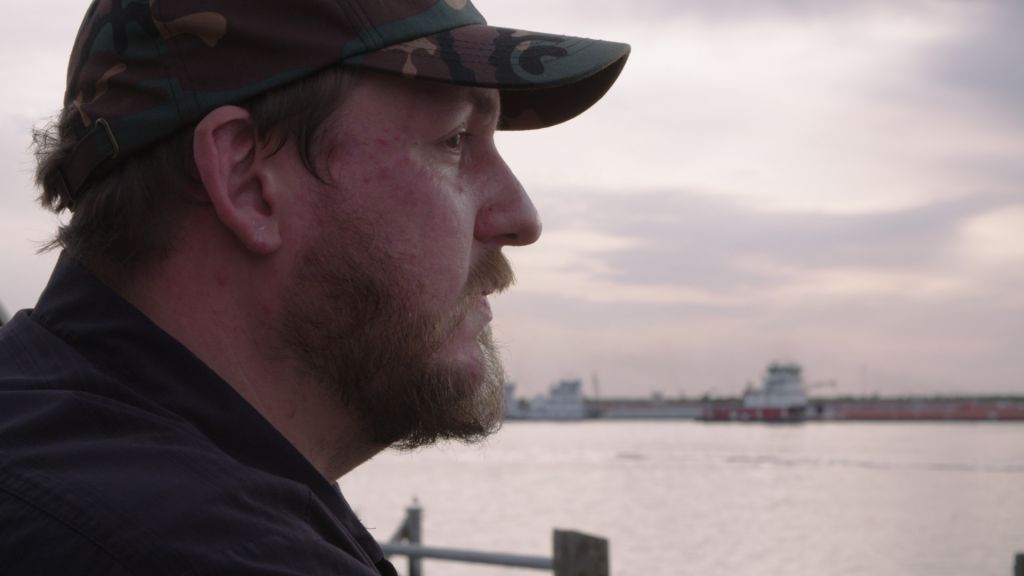
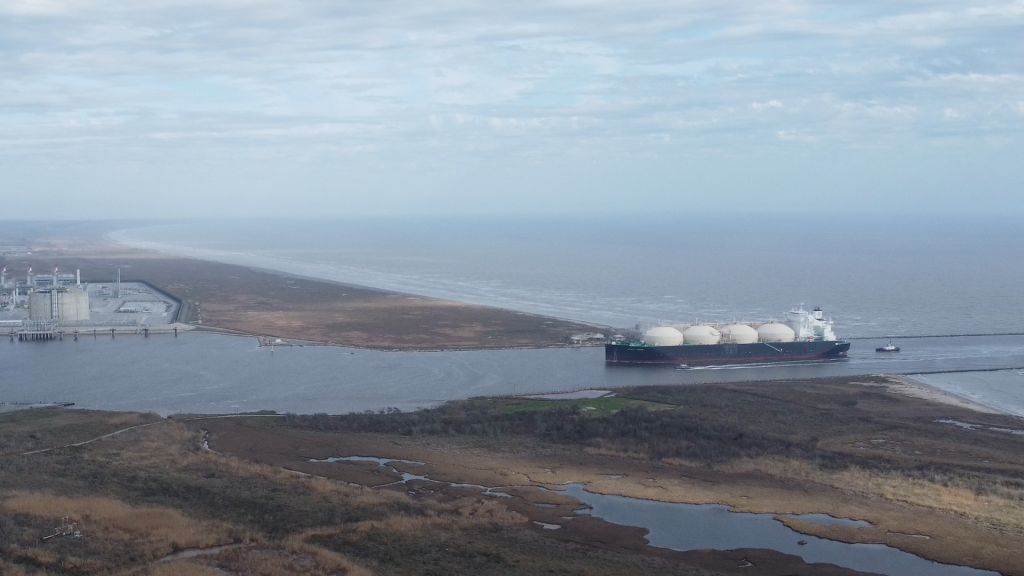
Several LNG facilities are planned nearby. Image by Briana Flin. Right: A ship approaches Calcasieu Pass LNG in Cameron Parish, Louisiana. Image courtesy of James Hiatt.
The latest era of fossil fuel infrastructure and extraction is already in progress — upending climate goals, creating new hazards, and deepening the injustice to communities that have been historically marginalized. The fossil fuel industry, having profited from systemic racism and economic exploitation for generations, is advancing its efforts in “sacrifice zones” — that is, the homes and communities of people living and working along the Gulf Coast. Now leaders in these communities are pushing back, advancing dynamic solutions with the goal of a just transition to the era of clean energy.
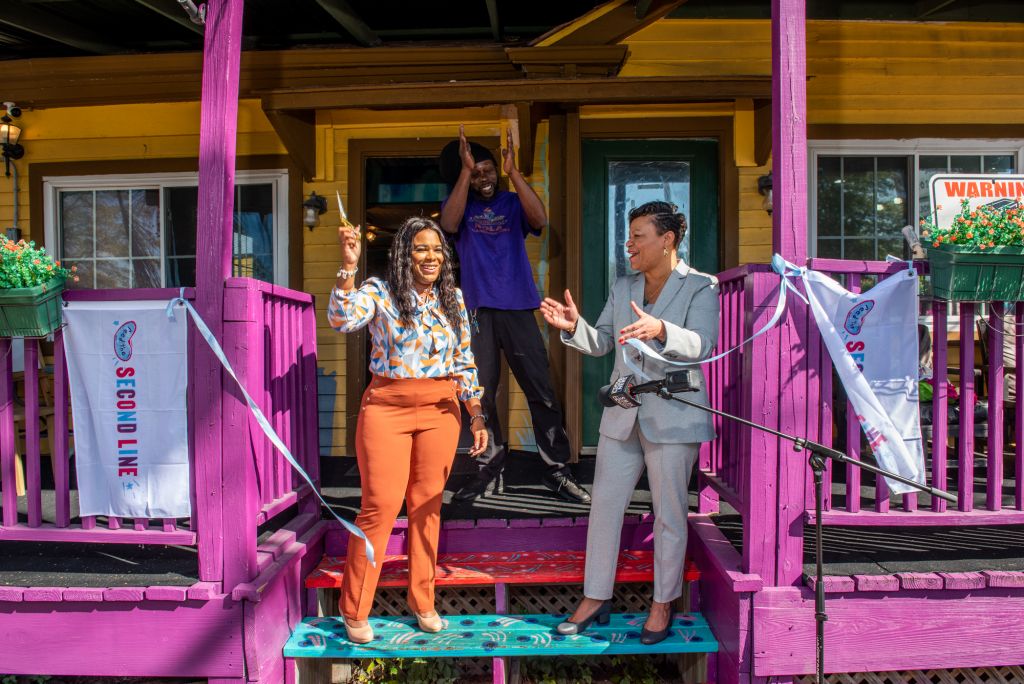
Facing Down the Fossils is a series about the people who are dealing with generational consequences of the pollution and economic damage caused by the fossil fuel industry and who now face the prospect of even more fossil fuel projects in the United States. In response, these communities are not only standing up to wrongdoing but also leading the effort to advance clean energy production. The project takes viewers to these communities to hear from the people who have dedicated themselves to fighting injustice in opposition to governments and multinational organizations.
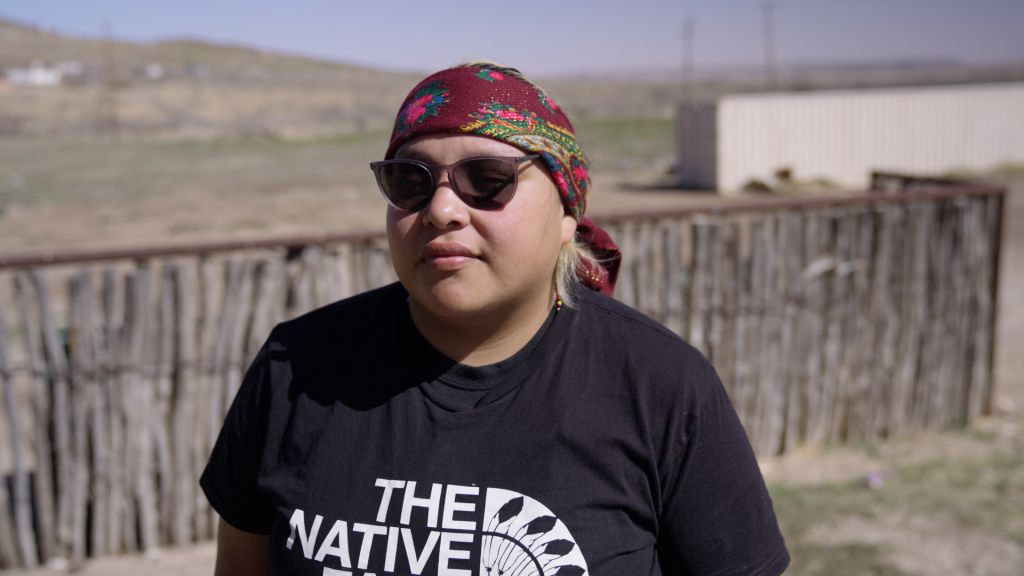
Here are some of the main themes on which the four episodes of Facing Down the Fossils focus:
- Rise Up features locals determined to halt the construction of new liquefied natural gas export terminals, which sell the fossil fuel methane — extracted in the U.S. — to the highest bidder overseas.
- Restore introduces a novel approach to restoring the lost land of Louisiana’s Bayou Country by transforming discarded glass bottles into sand.
- Resist follows an Indigenous youth-led walk and run hundreds of miles across Texas — from the Permian Basin to the Gulf Coast.
- Renew shows viewers how commitment to community and planning for the future in a climate-changed world can strengthen local economies and improve lives.
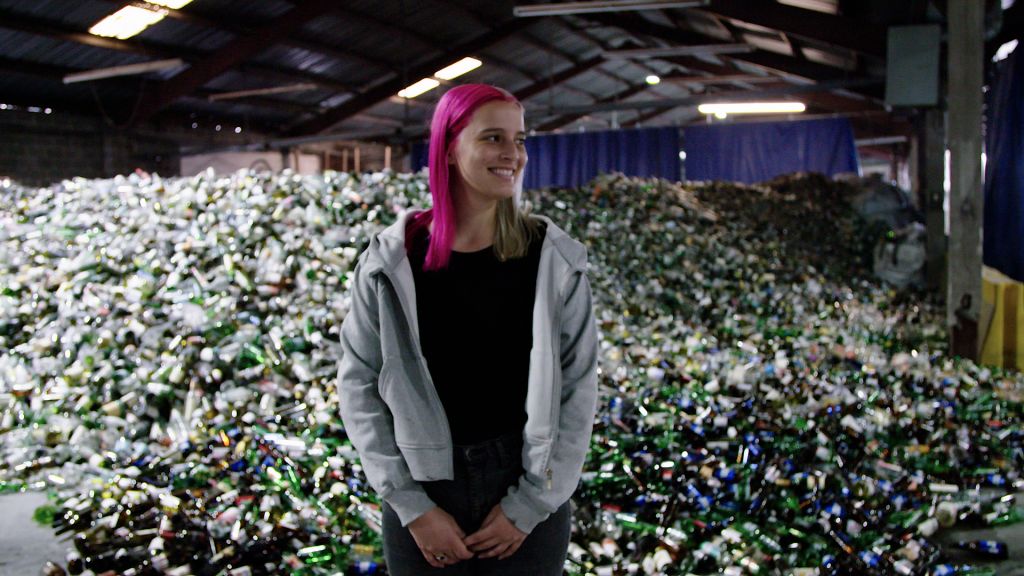
Facing Down the Fossils reveals what has been lost, what can be saved, and what might be gained in the vibrant neighborhoods, communities, and ecosystems of our Gulf Coast.
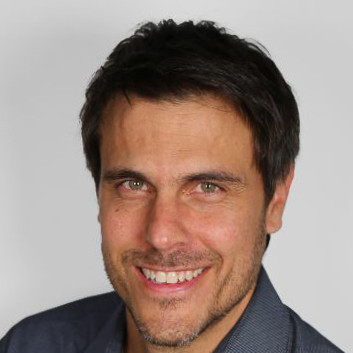
Josh Landis is an Executive Producer for Facing Down the Fossils. In addition, he is an award-winning journalist who wrote, produced, and reported for the nation’s preeminent television news divisions before founding the nonprofit syndicated newswire, Nexus Media News. He has filed stories from across the U.S., the Middle East, South Asia, New Zealand, and the South Pole. At ABC News, he was a staff writer for Peter Jennings and head writer for World News with Charles Gibson. At CBS News, he co-created The Fast Draw, the only regular, animated news series to air on a national network. In addition to his network television work, Landis was a professional photographer whose work appeared in The New York Times, USA Today, The Los Angeles Times, and other publications. He is a graduate of Tulane University and a former adjunct professor at the City University of New York.

Briana Flin is a Producer and Editor for Facing Down the Fossils. At Nexus Media News, she covers environmental justice and climate change. Her work has appeared in outlets like The Atlantic, WIRED, Newsy, KQED, and Twin Cities PBS. Prior to joining the Nexus Media team, she was at WIRED, producing videos on everything from kinetic sculptures to praying mantises sporting 3D glasses. She’s a proud alumnus of the UC Berkeley Graduate School of Journalism and a Californian born-and-raised.
See all episodes of Facing Down the Fossils and more on our website here.
Watch the series on YouTube.
Peril and Promise is a public media initiative from The WNET Group, reporting on the human stories of climate change and its solutions.
Major funding for Peril and Promise is provided by Dr. P. Roy Vagelos and Diana T. Vagelos with additional funding from Sue and Edgar Wachenheim III, and the Estate of Worthington Mayo-Smith.



